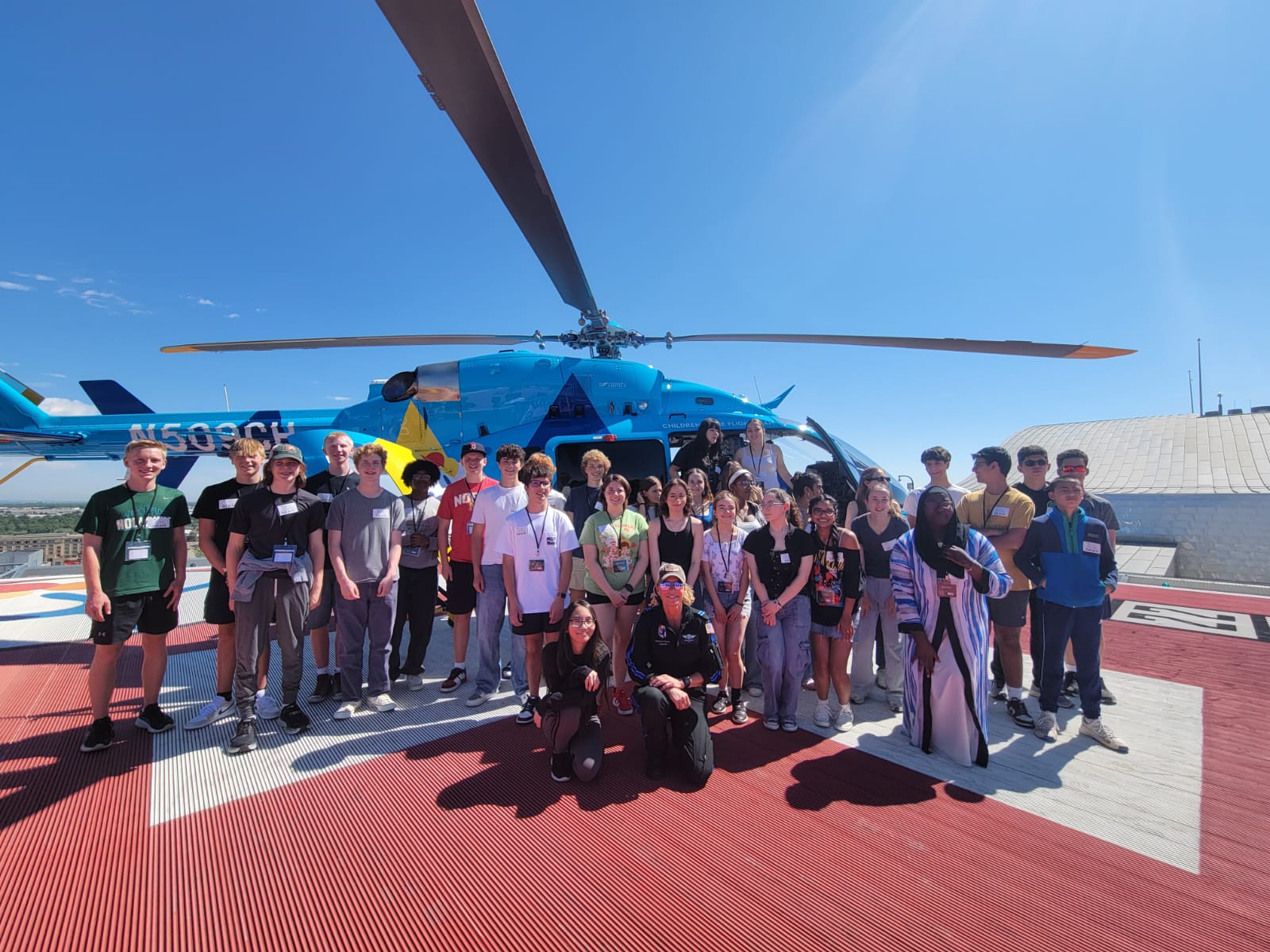BOLT Camp
Are you interested helping others? Are you fascinated by medical technology? Come experience where engineering meets medicine at BOLT, Bioengineering Opportunities and Leadership Training, Camp. Gain a better understanding of what it means to be a bioengineer through hands-on activities with our faculty and students.
What is BOLT Summer Camp?
BOLT is a camp for high school students that teaches about biomedical engineering and some of the exciting career options available for STEM-focused students. This in-person camp at the Department of Bioengineering at the CU Anschutz Medical Campus will be filled with interesting topics and activities designed to introduce high school students to biomedical engineering and leadership topics. The camp will be a four-day event offered entirely in person.
Student teams will work together to design, build, test, and iterate to create a prototype and compete in an engaging, yet laid-back design competition. In parallel, students will learn about biomedical engineering, dive into the theory of general engineering principles, and get a sneak peak of cutting-edge research. There will be many hands-on activities throughout the week and students come away with learning how to think creatively, how to interact and empathize with people who may have a disability, and how to apply their ideas to bioengineering problems.
Students will participate in a variety of activities, including
- 3D printing
- Touring labs on the medical campus
- Building prototype devices
- Interacting with doctors, researchers, and industry leaders
- Gaining applicable clinical and laboratory skills, exploring tissue engineering, and so much more!
880 KB
BOLT 2026: BIOENGINEERING SUMMER CAMP FOR HIGH SCHOOL STUDENTS
CU Anschutz Medical Campus
Session I: SOLD OUT!
Session II: SOLD OUT!
Session III: June 22 - 25, 2026
BOLT ALUMNI RESEARCH EXPERIENCE
CU Anschutz Medical Campus
10 a.m. - 4 p.m.
Session I: June 8 - 11, 2026 — for high school students < 18 years old
Session II: June 15 - 18, 2026 — for students > 18 years old
Session III: June 22 - 25, 2026 — for high school students < 18 years old
Students will select the activities they'd like to explore further on their STEM journey with the option to volunteer at BOLT camp as well.
Who: Open to anyone who previously attended BOLT summer camp.
Cost of Tuition: $875
All supplies and meals are included. Each Session is restricted to 10 seats, if enrollment is met, we will offer 2 partial scholarships per session.
2062 KB

Two more successful sessions of BOLT!!
Fifty high school students from Colorado and beyond spent a week on the CU Anschutz Medical Campus learning about how engineers solve important clinical problems as part of Bioengineering Opportunities and Leadership Training (BOLT) camp hosted by the Department of Bioengineering at CU Denver|Anschutz Medical Campus. Highlights of the camp included conducting a CRISPR Cas-9 tissue engineering experiment, participating in an anatomy experience with the AHEC cadaver lab, working with engineering and clinical faculty to design and prototype solutions to unmet clinical needs, and learning to solder, 3D print, and build circuits.